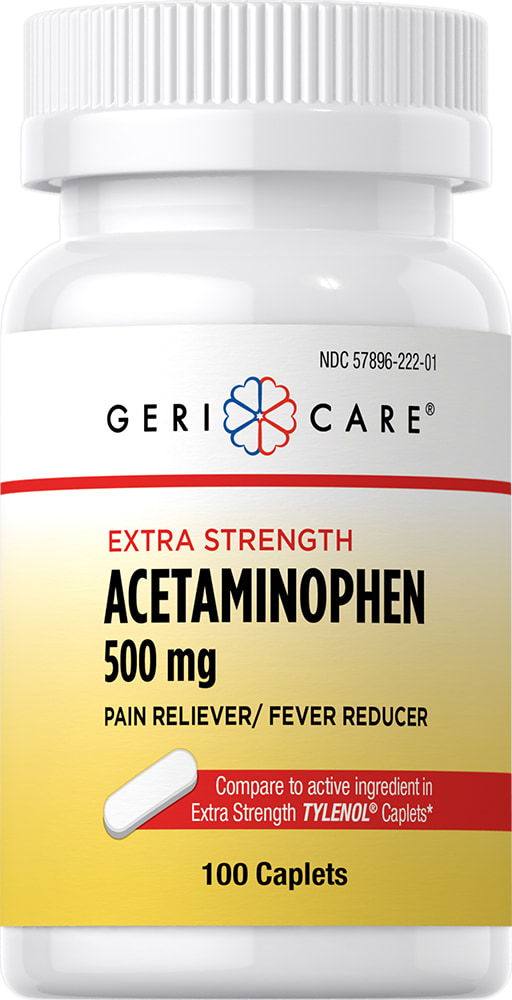We deliver to you every day from 7:00 to 23:00
The best discounts this week
Every week you can find the best discounts here.
Acetaminophen Uses: The Essential Guide to Safe and Effective Pain Relief
Acetaminophen, commonly known as paracetamol, is one of the most widely used medications for managing pain and reducing fever. Its ability to relieve mild to moderate pain, such as headaches, toothaches, and muscle aches, has made it a staple in households around the world. However, despite its widespread use, it’s important to understand its correct dosage, potential side effects, and best practices for safe use. This comprehensive guide will walk you through the various acetaminophen uses, including its effectiveness, risks, and recommendations for safe consumption.

What is Acetaminophen?
Acetaminophen is a non-opioid analgesic and antipyretic drug, meaning it’s used to relieve pain and reduce fever. Unlike NSAIDs like ibuprofen, acetaminophen does not reduce inflammation, but it is highly effective in treating various pain types, including those associated with headaches, arthritis, and minor injuries. Available in various forms such as tablets, capsules, liquids, and suppositories, acetaminophen is often combined with other medications to treat cold and flu symptoms.
Because it is available over-the-counter (OTC) without a prescription, acetaminophen is an easy and accessible option for managing common ailments. However, like all medications, it’s important to follow recommended dosages to prevent complications, especially related to the liver.
Common Uses of Acetaminophen
1. Pain Relief
Acetaminophen is best known for its ability to treat various types of pain. It is commonly used to relieve:
-
Headaches
-
Toothaches
-
Back pain
-
Arthritis pain
-
Menstrual cramps
-
Muscle aches
While acetaminophen is effective for mild to moderate pain, it may not be strong enough for more severe pain like that caused by surgery or trauma. In such cases, stronger pain relief methods may be necessary.
2. Fever Reduction
Acetaminophen is also commonly used to reduce fever. When you have a fever due to illness, acetaminophen works by helping to lower your body’s elevated temperature. This is particularly useful for managing fever associated with colds, flu, or infections.
However, if your fever persists for more than a few days or is accompanied by other severe symptoms, it is important to consult a healthcare professional.
3. Combination Medications
Acetaminophen is frequently combined with other drugs, such as cough suppressants, decongestants, and antihistamines, in combination cold and flu medications. These combinations are helpful in addressing multiple symptoms simultaneously, including pain, fever, and congestion.
For example, acetaminophen is a key ingredient in many popular OTC pain relievers used for cold, flu, and allergy relief.

How Does Acetaminophen Work?
Acetaminophen works by inhibiting certain chemicals in the brain known as prostaglandins, which are involved in the inflammatory process. Prostaglandins contribute to pain and fever, so by reducing their production, acetaminophen helps to decrease pain and lower fever. Unlike NSAIDs such as ibuprofen, acetaminophen does not have a significant anti-inflammatory effect, but it is still effective for many common pain types.
It is believed to work mainly in the central nervous system rather than at the site of pain. This makes it an ideal option for managing systemic pain or pain that involves a larger area of the body.
Acetaminophen Dosage Guidelines
When taking acetaminophen, it’s essential to follow dosage instructions to avoid serious side effects, particularly liver damage. The general guidelines for acetaminophen use include:
-
Adults and children over 12 years old: The usual dose is 500 mg to 1000 mg every 4 to 6 hours, with a maximum of 4000 mg per day.
-
Children (6-12 years): The typical dose is 250 mg to 500 mg every 4 to 6 hours, with a maximum of 2000 mg per day.
-
Children (2-6 years): The dose is usually 160 mg to 250 mg every 4 to 6 hours, not exceeding 2000 mg per day.
Be sure to check the specific dosing instructions on the label, as formulations and concentrations can vary. Never exceed the recommended dose, as acetaminophen overdose can cause severe liver damage, which can be life-threatening.
Acetaminophen Side Effects and Risks
While acetaminophen is generally safe when used as directed, there are some potential risks and side effects to consider:
Liver Damage
The most serious risk of acetaminophen overdose is liver damage. Taking more than the recommended dose can overwhelm the liver, leading to acute liver failure, which requires immediate medical attention. Individuals with existing liver conditions or alcohol users should use acetaminophen with caution.
Allergic Reactions
Though rare, some individuals may experience allergic reactions to acetaminophen, including skin rashes, swelling, or difficulty breathing. If any of these symptoms occur, discontinue use and seek medical attention immediately.
Gastrointestinal Issues
Acetaminophen is less likely to cause gastrointestinal problems compared to NSAIDs, but some people may still experience stomach discomfort or nausea. If you have a sensitive stomach, consider taking acetaminophen with food.
Precautions for Safe Use
1. Avoid Alcohol
It is essential to avoid alcohol while using acetaminophen, as both substances are processed by the liver. Drinking alcohol can increase the risk of liver damage, especially when taking acetaminophen at high doses.
2. Be Cautious with Other Medications
Acetaminophen is commonly found in many combination medications, so it’s important to avoid taking multiple products that contain acetaminophen at the same time. Always check the labels of any OTC medications you’re taking to ensure you’re not exceeding the recommended dose.
3. Consult with a Healthcare Provider
If you have liver disease, chronic alcohol use, or other health conditions, it’s a good idea to consult with your healthcare provider before taking acetaminophen. They may recommend an alternative medication that’s safer for your specific condition.
FAQs about Acetaminophen
1. Can I take acetaminophen for a long period?
Acetaminophen is generally safe for short-term use. If you need to take it for an extended period, consult your doctor, especially if the pain or fever persists.
2. Can I take acetaminophen with other pain medications?
Acetaminophen is often combined with other pain relievers, such as ibuprofen or aspirin, but it’s important to consult with your doctor to avoid exceeding the safe dosage limits.
3. Is acetaminophen safe during pregnancy?
Acetaminophen is generally considered safe during pregnancy when used at the recommended dose. However, you should consult with your healthcare provider before taking any medication during pregnancy.
4. What should I do if I overdose on acetaminophen?
If you suspect an overdose, seek emergency medical help immediately. Overdosing on acetaminophen can cause liver damage and may require treatment with acetylcysteine to prevent liver failure.
Conclusion
Acetaminophen is a versatile, effective, and widely used pain relief medication. Whether you’re dealing with headaches, muscle aches, or fever, it offers a safe solution when used correctly. However, it’s important to follow the recommended dosage to avoid serious side effects, particularly liver damage.
If you have any concerns or need more information, consult your doctor or pharmacist to ensure you’re using acetaminophen in the safest and most effective way.












